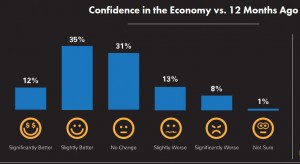
Some examples of employee incentives that I have come across in the recent past:
- A social media manager who receives a bonus based on growth in total followership
- A search engine marketer who receives a bonus based on lowering cost per lead
- An email marketing specialist who receives a bonus based on open and click thru rate improvements
- A sales team leader who receives a bonus based on conversion rate of leads to sales on outbound sales calls
From the list above, do any of the incentives stand out to you? Can you think of any reason why those incentives should not be in place?
On first look, they all seem to make sense. A social media manager should aim to grow the reach of the brand. A search engine marketer should take efforts to lower marginal costs. An email marketer should push for higher engagement. And a sales manager should value his team’s ability to close more sales.
But remember, what you measure matters. And if an employee at any level of the organization has all or part of their pay tied to certain metrics, those are the metrics that will matter to them. Even if they are not metrics that are tied back to the overall performance of the company.
That in mind, let’s find the problem with each of the above incentives.
- A social media manager who receives a bonus based on growth in total followership. This is all well and good except that how do we know that followership helps the business? You can increase followership by spending money to promote the brand page, or by buying lists. But that doesn’t mean it’s going to lead to an increase in brand engagement, loyalty or sales. Wouldn’t it be better to measure something that ties revenue back to social media activities?
- A search engine marketer who receives a bonus based on lowering cost per lead. While it might be good if a business drove more leads for the same amount of money, who is to say that those leads will be of the same quality. You can drive down lead cost by bidding on weaker terms, or spending more money on lesser search engines or content networks. That doesn’t mean that sales and revenue will go up as a result. Wouldn’t it be better to measure profitability of the advertising dollars over time?
- An email marketing specialist who receives a bonus based on open and click thru rate improvements. One might assume that more people opening and clicking on your emails is a good thing, but not if those people don’t end up becoming customers. The ultimate goal of any email campaign is not just an open and a click. It’s something else – a donation, a sale, a referral, greater loyalty or retention. Wouldn’t it be better to measure those outcomes?
- A sales team leader who receives a bonus based on conversion rate of leads to sales on outbound sales calls. This one seems like the most reasonable at first blush, but it too has its issues. One way to get to a higher conversion rate would be to pre-sort prospects and call only the easy sales. Another way would be to apply aggressive tactics over the phone in an attempt to pressure more people to purchase. These efforts can lead to lower sales and satisfaction, and higher cancels and refunds down the road. Wouldn’t it be better to measure a lifetime revenue metric and aim for higher total revenue per dollar spent on selling/calling?
Aligning individual incentives to the larger company goals is the only way to make sure everyone is working toward the same mission.
Business & Finance Articles on Business 2 Community
Author: Zach Heller
My name is Zach Heller. I am a marketing professional with years of experience in branding, digital marketing, direct response and marketing communications. I have entrepreneurial and consulting experience, and love working with small and medium sized companies to help direct marketing efforts toward growth. I am the sole operator… View full profile ›
(125)
Report Post





